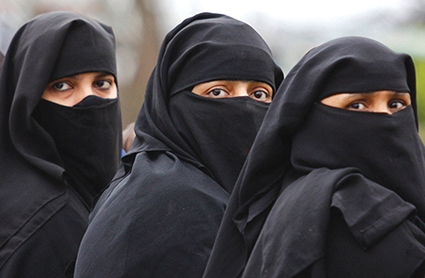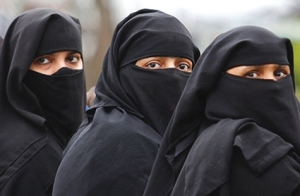The Case for Georgian Woman in Syria & Iraq
Since the beginning of the Syrian and Iraqi conflicts, tens of Georgian citizens have traveled to Syria to participate. However, there has been little discussion about the involvement of women in said conflicts. On 23 January, the Georgian Foundation for Strategic and International Studies (Rondeli Foundation) held a public discussion in Tbilisi on women from Georgia in the Syrian and Iraqi conflicts to highlight the important issue.
Research by Aleksandre Kvakhadze, a research fellow at the Rondeli Foundation, found that 17 Georgian women were located in Syria or Iraq, 12 of whom are ethnic Kists from the Pankisi Gorge region to the south of Tusheti. A further four were Azerbaijani from the Kakheti and Kvemo Kartli regions and one woman was an ethnic Georgian who converted to Islam. No women from Adjara, the area with Georgia’s highest Muslim population, are known to have traveled to Syria or Iraq.
What exactly motivated the women to head to the conflict? With an average age of 26 and at least a high school education, the question of motivation is extremely significant. Mia Bloom, professor and author, believes the main factors are revenge, redemption, relationship, respect and rape, rather than radicalization. Many women travel to conflict zones for marriage and family relationships.
Indeed, respondents interviewed by the Rondeli Foundation in Pankisi Gorge explained that financial support was an important motivational factor. Another respondent noted that many secondary school girls had romantic feelings or empathy for those fighting in Syria when the conflict was more active. Escape from domestic abuse is also thought to be a reason for some of the women.
Ideological indoctrination nonetheless played a key role in inspiring women from Georgia to move to Iraq or Syria. Irada Garibova and Ana Suleimanova from Karalja village in Eastern Georgia left their husbands and traveled to Syria as their husbands were not religious. Their husbands were “more concerned about their businesses than the jihad,” reads the report.
Nonetheless, the vast majority of Caucasian women captured after the loss of territories and withdrawal of jihadi groups had followed their spouses to the region. In accordance with sharia law, women were excluded from fighting and decision-making processes. Instead, they were confined to their homes and charged with caring for the household. Many women lived isolated lives void from communication, with total dependence on fighters. Aside from Diana Ramazanova from Dagestan, who detonated a suicide bomb in a police station in Istanbul, Caucasian women were not reported to have participated in hostilities.
As IS has lost its territories, the future of Georgian women in Syria and Iraq is uncertain. Having lost their husbands or protectors, the women are extremely vulnerable. 19 Russian-speaking women were sentenced to life imprisonment by the Iraqi court after being captured. It is likely that this includes women from the Caucasus. In addition, one woman from Georgia was sentenced in Iraq, along with her children.
The future of these women is unclear. The leader of Chechnya, Ramzan Kadyrov, has organized the return of some North Caucasian women from Syria and Iraq, whilst women returning to Dagistan were arrested upon their return. It is also thought that some women are avoiding returning to Georgia fearing the risk of arrest. Given their minimal involvement in the brutalities of conflict and their vulnerable positions, perhaps rehabilitation would be more effective than imprisonment. Perhaps by telling their stories, the women could even prevent others from following the same path.
By Amy Jones
Image source: The Clarion Project












